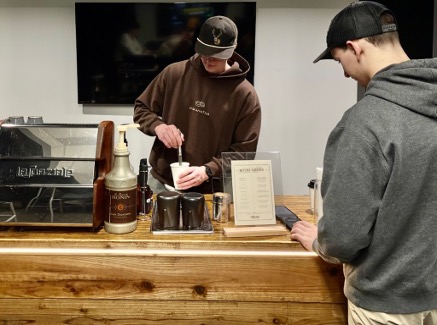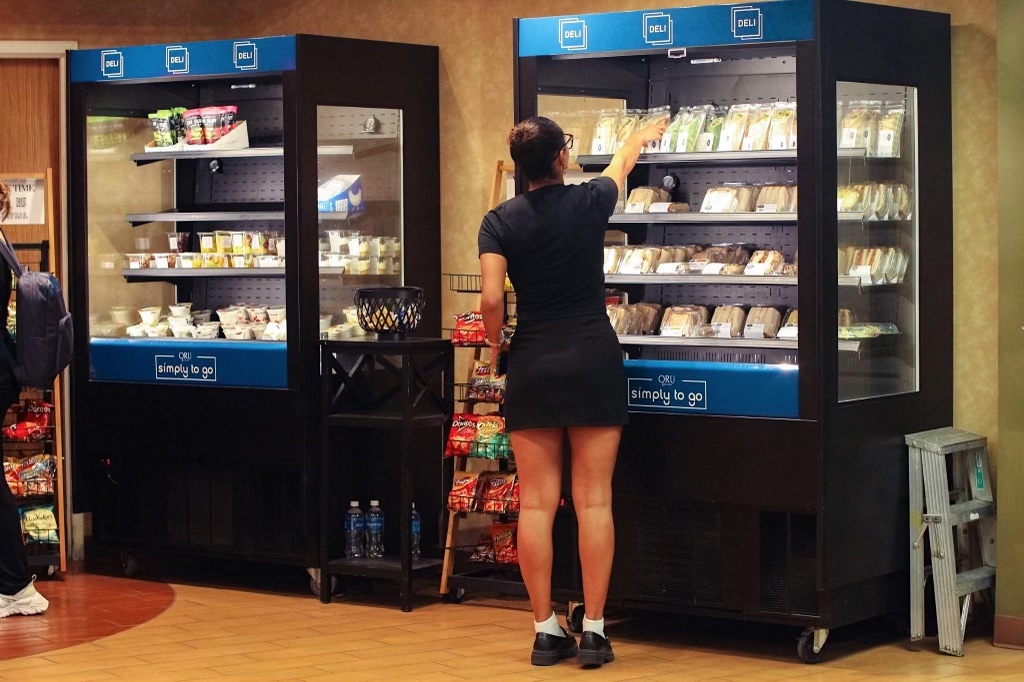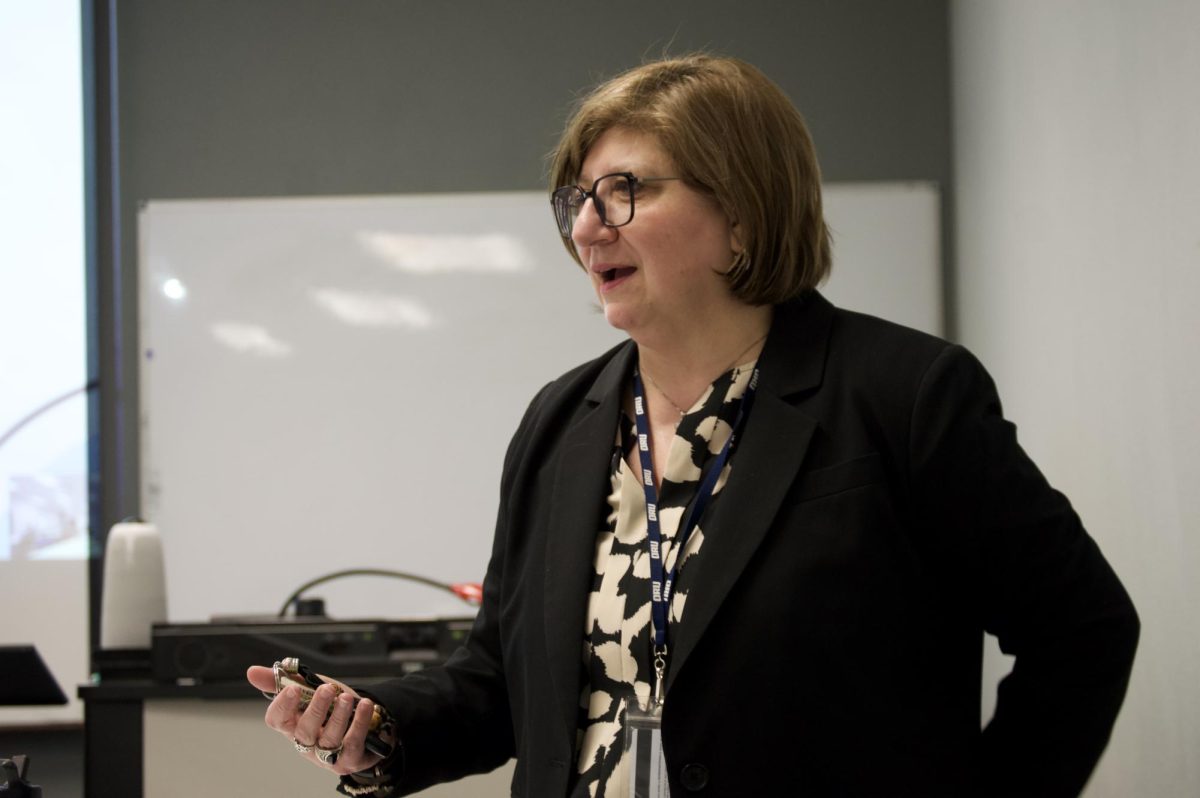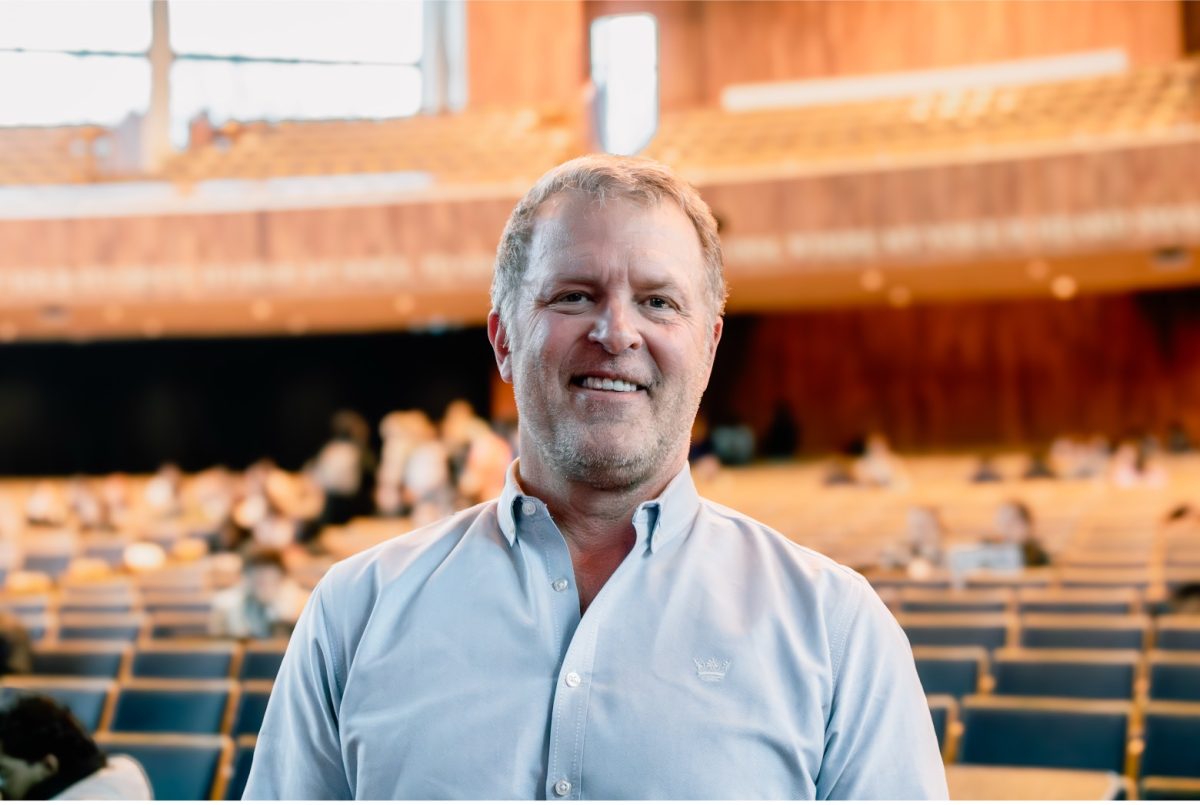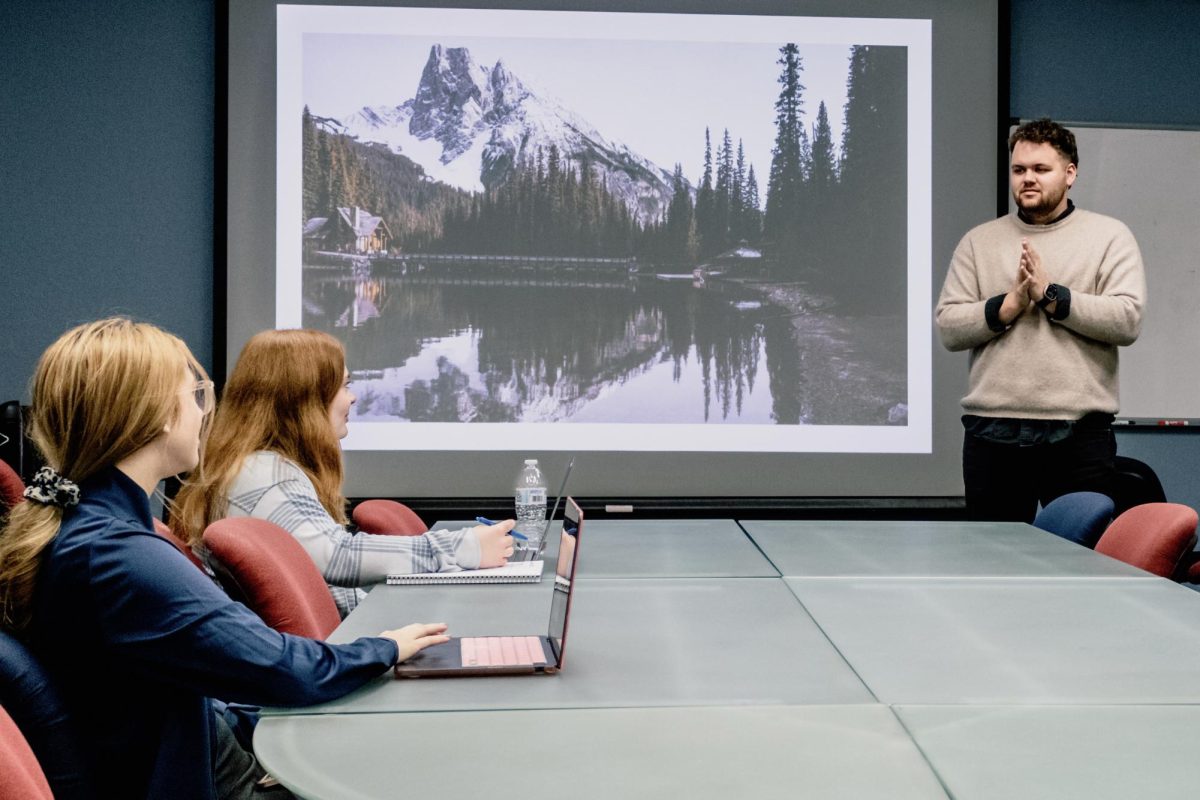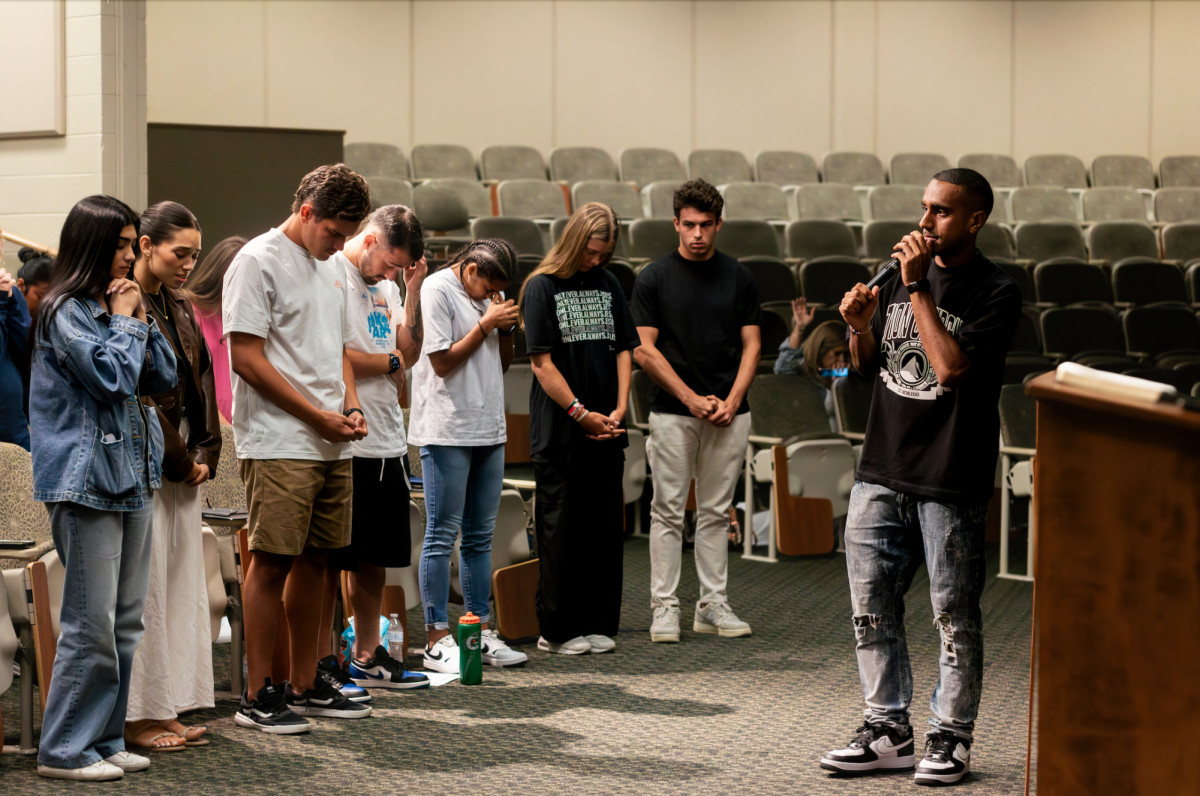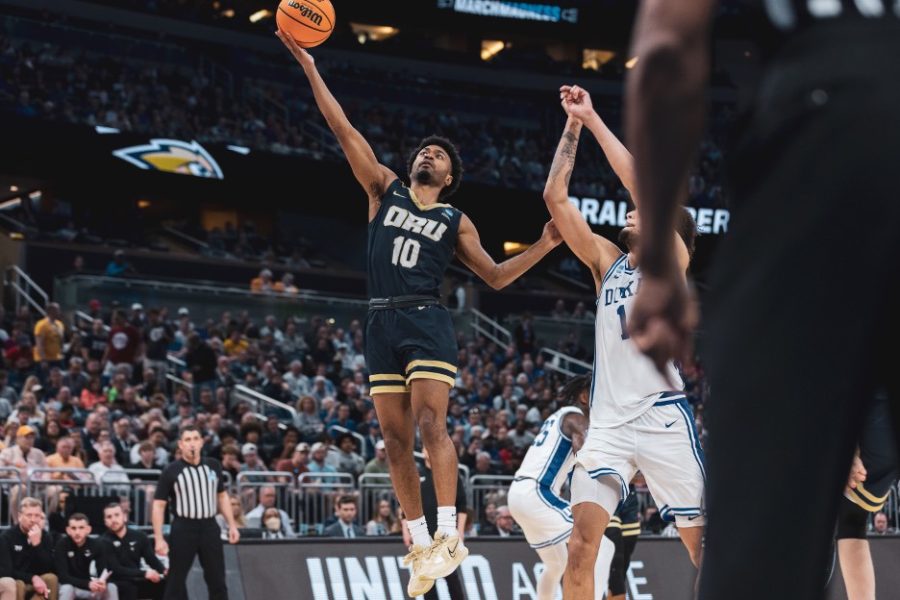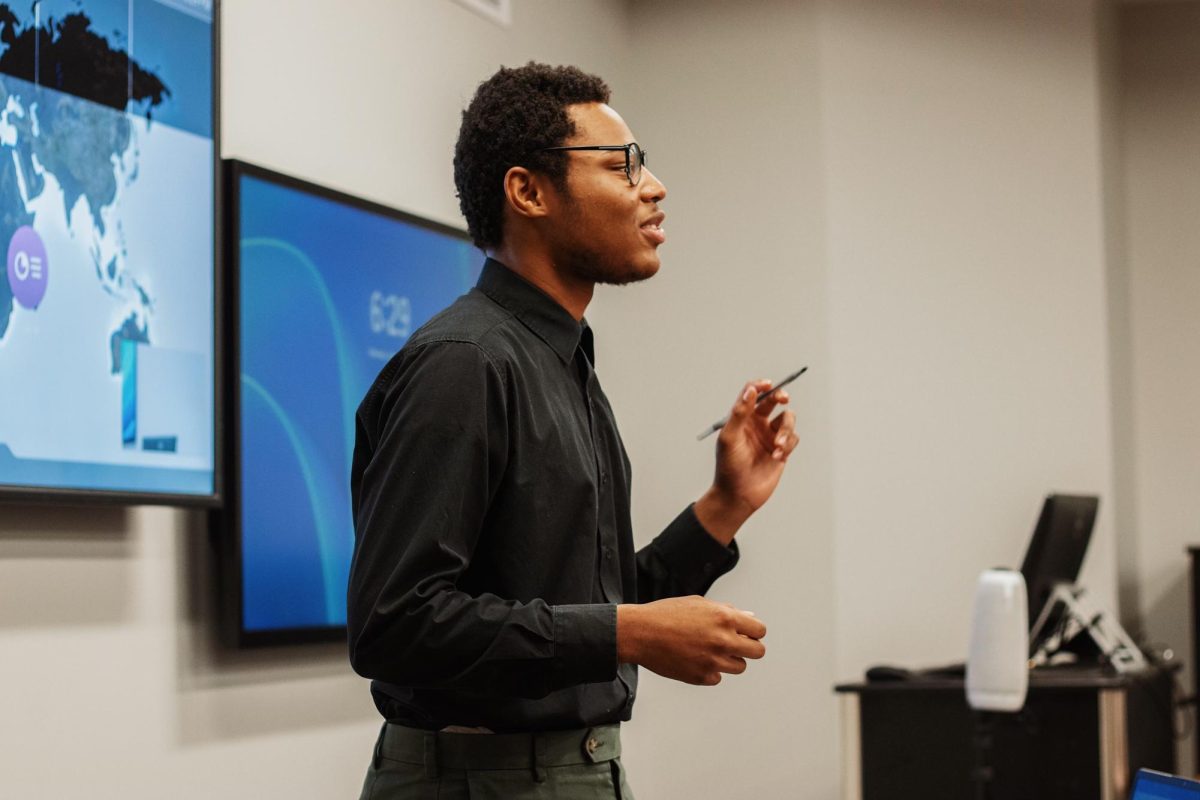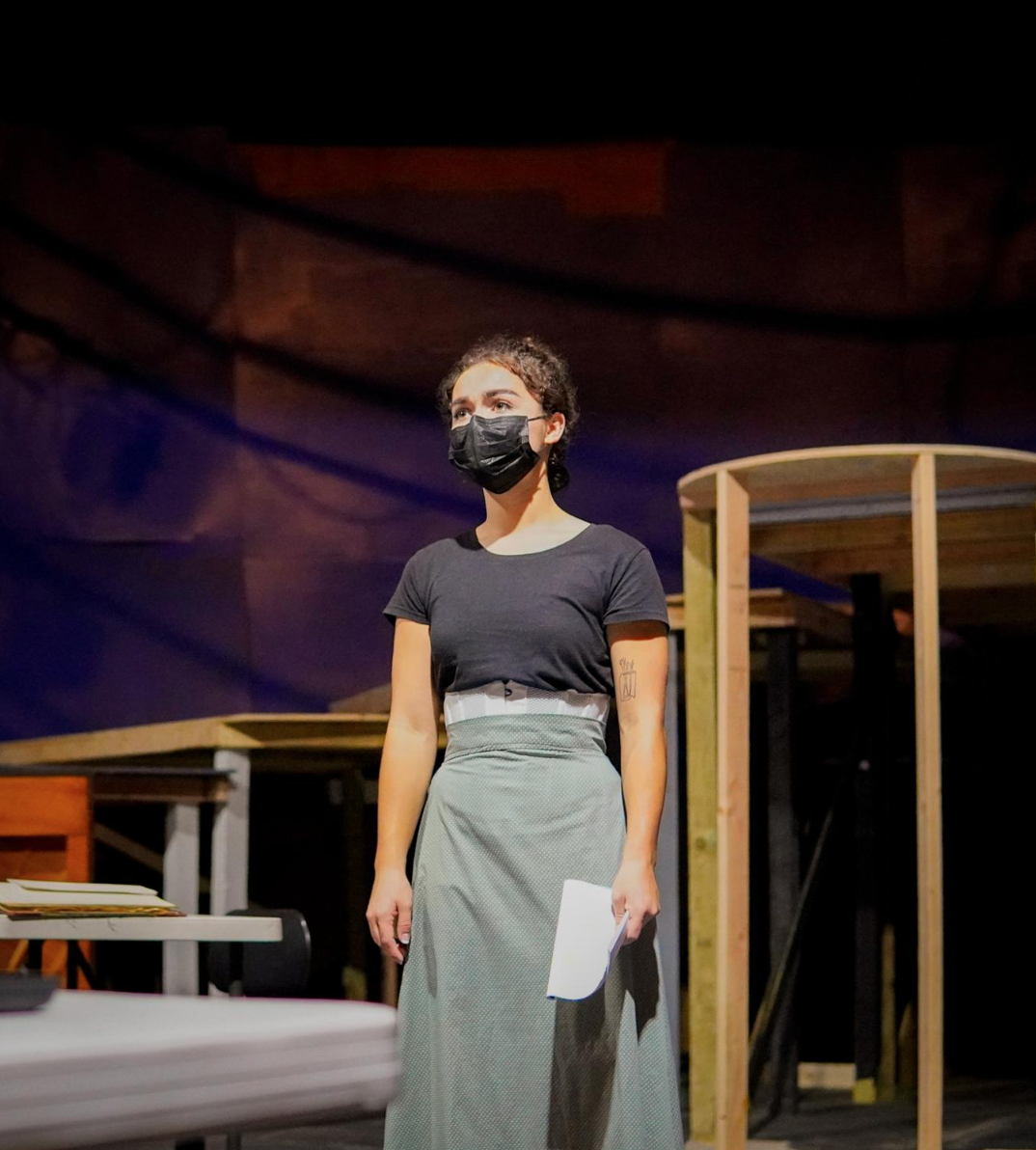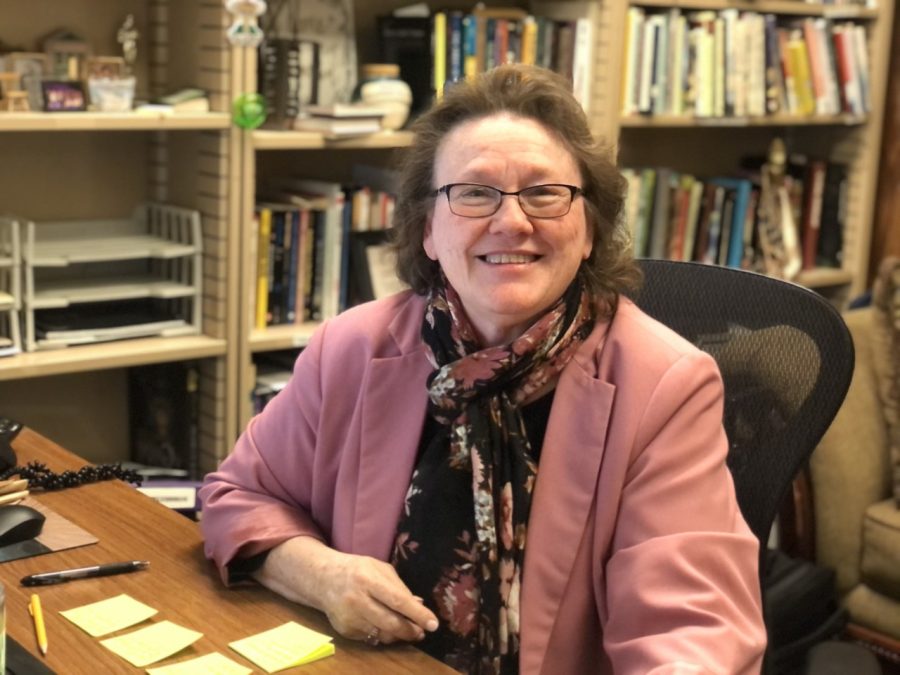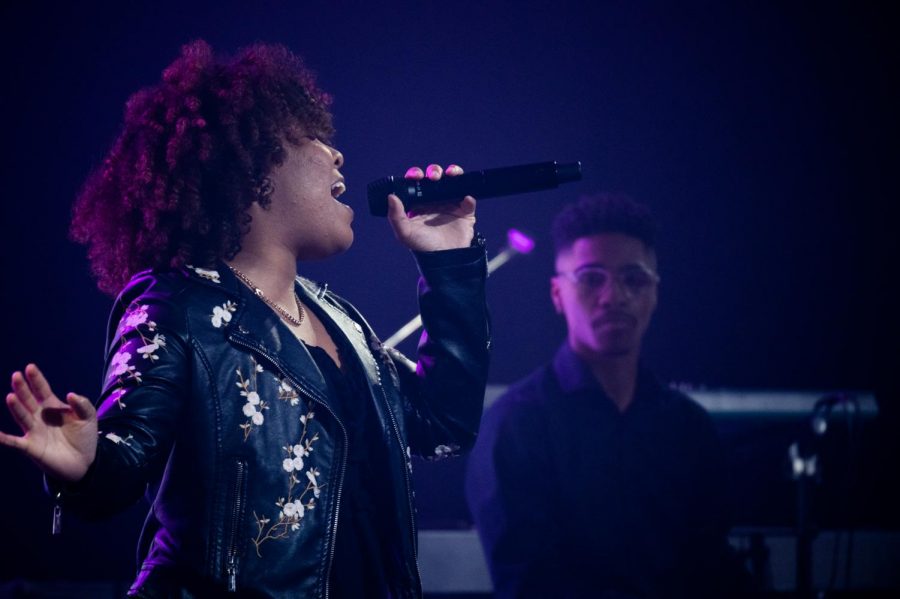‘Ring by spring’: ORU students buck national trend to get engaged early
November 3, 2022
Joeli Krantz, a biology senior from Topeka, Kansas, first caught Caden Forbes’ eye in January 2021 when he saw her walking with her boyfriend on the Oral Roberts University campus.
“I stopped in my tracks,” said Forbes, a biology junior. “I thought, ‘That is the luckiest dude on the planet.’”
Within the month, Krantz and her boyfriend broke up. Forbes asked Krantz on a date, and the couple became official on Valentine’s Day.
To celebrate their six-month dating anniversary in August, the couple had dinner at Wild Fork, then returned to their favorite spot on campus to drink sparkling cider on a blanket beneath the stars. Forbes carried an engagement ring in his pocket.
“I felt total peace from the Lord letting me know that it was time,” said Forbes.
Forbes pulled the ring from his pocket, got down on one knee and proposed.
“I was totally surprised and happily overwhelmed,” said Krantz. “The night was such a dream. I felt so blessed, excited, happy, overjoyed, and loved. It is a memory I will always treasure.”
Their family and friends surrounded the couple with encouragement and support as they pitched in to begin planning the wedding.
ORU students use the term “ring-by-spring” to describe students like Forbes who get engaged while they are still in college.
Nationwide, however, students who get engaged often face negative reactions, according to “Ring by Spring: The Impact of Marriage on Undergraduate Student Engagement” by Jessica Clark.
“Students who decide to marry during college,” according to Clark, “sometimes suffer from the common assumptions of peers, family and faculty that they lack seriousness toward academic and career goals and that they have not thought through the realities of marriage.”
Getting married in your early 20s used to be the norm in the United States as recently as the 1950s, according to Census data. But since the 1960s, Americans have been waiting longer and longer to get married.
In 2021, for the first time in U.S. history, the median age of a groom exceeded 30 years old, while the median age for brides also set a new high at 28, according to Census data.
Forbes has faced negative stereotypes about getting married young, but it has not shaken his confidence in tying the knot.
“It ultimately doesn’t bother us,” said Forbes. “We know God has put the same vision on both of our hearts, and no one else has a place to put those down.”
Forbes and Krantz recognize that their priorities have shifted from campus life to building their future marriage. However, they continue to invest in their friendships.
“We still get to hang out with our friends and have fun,” said Krantz. “Things have shifted. This is the relationship that I am building for the future. That’s my priority.”
The wedding will come this May.

